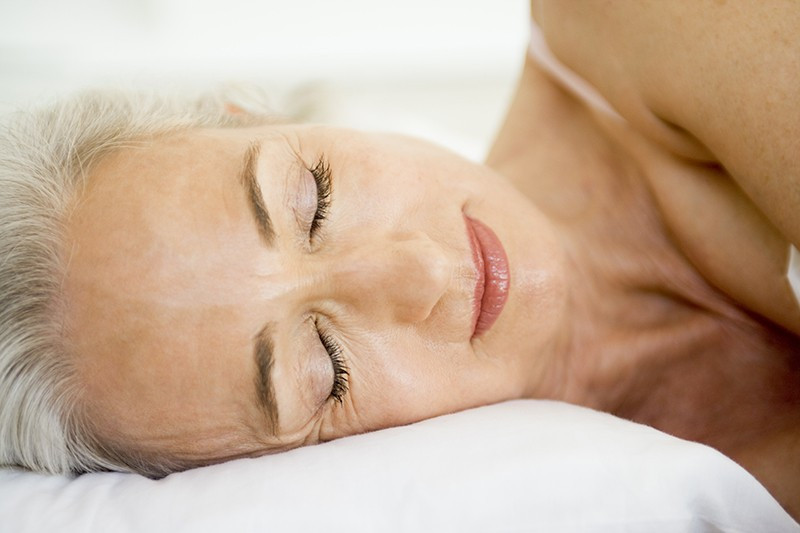Sometimes a topic for humor, menopause is likely no laughing matter for anyone who has ever been through it. And don't be fooled by the pause portion of the word. The term menopause is derived from the Ancient Greek terms ‘mene' (referring to ‘moon,' think ‘month') and ‘pauein' (which means ‘stop,' as opposed to pause). Menopause is a natural biological process that starts when a woman stops having menstrual periods and can therefore no longer bear children, typically occurring in her late 40s or early 50s. The most common causes of menopause, according to mayoclinic.com, are a natural decline of reproductive hormones, a hysterectomy, chemotherapy and radiation therapy, and primary ovarian insufficiency. A partial hysterectomy, which involves removal of the uterus but leaves the ovaries intact, usually won't immediately cause menopause. On the other hand, a total hysterectomy leads straight to menopause, with not much, if any, of a transition period, before menopausal symptoms such as hot flashes start arriving. When talking about menopause, the symptoms usually dominate the conversation more than the causes, and no symptom is more closely associated with—and mocked—than hot flashes, which ordinarily last anywhere from about 30 seconds to 10 minutes or more. They are also the culprit behind women waking up in the morning, or in the middle of the night, soaked in sweat, to include their sleepwear and sheets. Here are some suggested treatments and remedies for symptoms, which, for the most part, are temporary:
- Hot flashes: Hormone therapy, with estrogen, is considered the most effective treatment. Estrogen can also help against bone loss. An alternative to estrogen when it comes to hot flashes are some low-dose antidepressants or contraceptives. Gabapentin (Nerontin) is also recommended by Mayo Clinic in place of estrogen, especially if you're also suffering from migraines. It also helps to know what the triggers might be, such as spicy foods, caffeine or hot beverages. Turning on a fan wherever you are should help. Also consider dressing in layers, removing a layer each time you feel the heat.
- Bone loss: We've already mentioned the benefits of estrogen. Also, talk to your primary-care physician about what other medications are effective for treating osteoporosis.
- Vaginal dryness/thinning: One remedy is to apply estrogen with a vaginal cream or ring. Over the counter, water-based lubricants such as K-Y jelly or Astroglide are especially helpful when sexually active. Staying sexually active will help you maintain good blood flow, which assists in keeping everything healthy in that area.
- Sleep issues: Before you head to your doctor for any sleep-aid prescriptions, see what you can do naturally. Menopause can mean loss of sleep and plenty of tossing and turning—not to mention those hot-flash sweats--but webmd.com says getting plenty of exercise can help you sleep at night; it's best if you end your regimen at least three hours before you hit the hay. Skip the alcoholic nightcap and consider a cup of warm milk instead. If you have trouble falling asleep or wake up in the middle of the night and can't get back to sleep, go with it and grab a good book to read. Look at it this way: how many times have you wished you had more time to read? Also, skip large meals, smoking and work right before bedtime, and avoid napping during the day.
- Mood fluctuations. Menopause has been described as PMS on steroids, complete with cranky moods, crying spells and clueless spouses. Activities such as tai chi and yoga can help you get through the rough spots, as can a spouse with the discipline and commitment to really listen and offer unconditional embraces. Finding fun things to do with friends and loved ones goes a long way, too. You can also look for a support group in your area, or take the initiative and start one.
- Headaches: Migraines can sometimes show up during menopause—if they do, keep a journal to track what might be triggering them. That will help inform your doctor if needed. Oftentimes hunger can be a trigger; eating small meals through the day can help stave off headaches. An occasional nap can help as well, although you will have to weigh that against any nighttime sleep problems you might have, because daytime naps can hinder nighttime sleep.
- Memory problems: Some women have reported newfound problems with cognition or focus once they hit menopause. Healthcare professionals suggest challenging your brain in new ways, the use-it-or-lose-it philosophy. Working puzzles is one idea, be it a crossword, Soduku or one of the other puzzles you find in newspapers such as the Jumble. Starting a new hobby, taking a college course at a local college or learning a new language can keep your brain motor humming.

